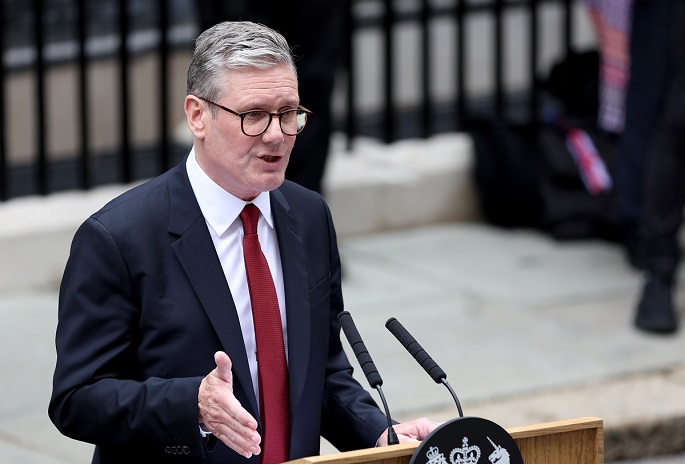Starmer becomes Britain's new PM
Published : 05 Jul 2024, 19:57
Keir Starmer, who has led the Labour Party to achieve a landslide victory in Britain's general election, officially became the new prime minister after meeting with King Charles III at Buckingham Palace in London on Friday, reported Xinhua.
"Our country has voted decisively for change and a return of politics to public service," Starmer said in his first speech as prime minister in front of 10 Downing Street.
However, "changing a country is not like flicking a switch," said Starmer, noting that the world has become "more volatile."
He said the work for change will begin immediately but will time.
The new prime minister highlighted his focus on things that "working-class families like mine can build their lives around." He pledged to get the country's struggling healthcare system back on track, secure British borders, and attend to the need for schools and affordable homes.
"If I asked you now whether you believed that Britain will be better for your children, I know too many of you will say no -- and so my government will fight until you believe again," he added.
Also on Friday, Starmer began appointing his cabinet, making Angela Rayner deputy prime minister, and leveling up housing and communities secretary.
Meanwhile, Rachel Reeves has become Britain's first female Chancellor of the Exchequer. Yvette Cooper was appointed home secretary, and David Lammy was named foreign secretary and John Healey was appointed as defense secretary.
Other appointments include Shabana Mahmood as justice secretary, Wes Streeting as health secretary, Bridget Phillipson as education secretary, and Ed Miliband as energy secretary.
Earlier Friday, Rishi Sunak resigned as British prime minister. He will also step down as leader of the Conservative Party after the Tories lost heavily to the Labour Party in the general election.
Vote counting for Thursday's election is still ongoing. Out of the 650 seats in parliament, Labour has secured 412 while the Conservatives have won 121. Labour's parliamentary majority marks the end of the Conservatives' 14-year rule.


